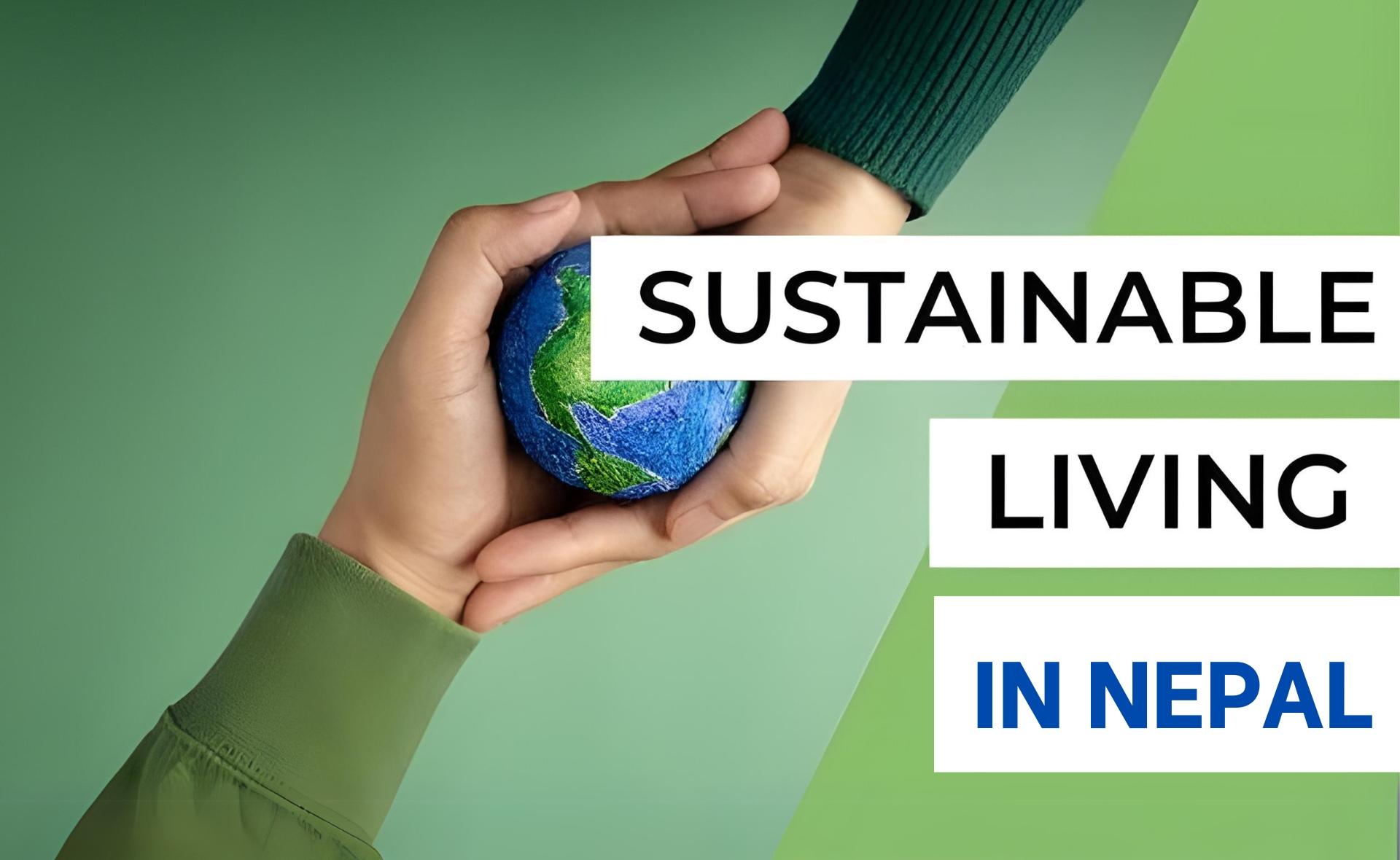Sustainable Living in Nepal

Sustainable Living in Nepal: Eco-Friendly Tips to Save the Planet and Transform Your Life
Introduction
Nepal, home to the Himalayas and breathtaking natural beauty, is at a crossroads. Climate change, pollution, and deforestation threaten its pristine environment. But there’s hope! Sustainable living is no longer just a global trend—it’s a necessity, and Nepal is stepping up.
In this blog, we’ll explore practical, eco-friendly tips tailored for Nepal. Whether you’re in Kathmandu, Pokhara, or a remote village, these steps will help you live sustainably, save money, and protect the planet. Let’s dive into the ultimate guide to sustainable living in Nepal!

Why Sustainable Living is Crucial for Nepal
Nepal is one of the most vulnerable countries to climate change. From melting glaciers in the Himalayas to erratic monsoon patterns, the signs are clear. By adopting sustainable practices, we can:
- Preserve Nepal’s natural heritage for future generations.
- Reduce our carbon footprint and combat climate change.
- Save money by using resources more efficiently.
- Inspire communities to take collective action.

Top Eco-Friendly Practices for Sustainable Living in Nepal
1. Switch to Renewable Energy
Nepal’s geography makes it perfect for renewable energy. Solar power and hydropower are not only sustainable but also cost-effective in the long run.
- Install solar panels to power your home.
- Support community hydropower projects in rural areas.
- Use solar-powered gadgets like lights and water heaters.
Pro Tip: Did you know Nepal has the potential to generate 83,000 MW of hydropower? Switching to renewable energy can cut your electricity bills and reduce reliance on fossil fuels.
2. Reduce, Reuse, Recycle
Waste management is a growing concern in Nepal, especially in urban areas like Kathmandu. Adopting the 3Rs can make a huge difference.
- Compost organic waste at home to create natural fertilizer.
- Recycle plastics, paper, and glass to reduce landfill waste.
- Avoid single-use items and opt for reusable alternatives.
Did You Know? Kathmandu generates over 500 tons of waste daily. By recycling, you can help reduce this staggering number.
3. Support Local and Organic Products
Buying local isn’t just about supporting Nepali farmers—it’s also about reducing the carbon footprint of imported goods.
- Shop for organic vegetables from Kavre or Dhading.
- Choose handmade products like Dhaka fabric or Lokta paper.
- Visit farmers’ markets to buy fresh, pesticide-free produce.
Fun Fact: Organic farming is gaining popularity in Nepal, with many communities adopting chemical-free practices.
4. Embrace Eco-Tourism
Nepal is a global leader in eco-tourism. By traveling responsibly, you can help preserve its natural beauty.
- Stay at eco-friendly lodges in Chitwan or Pokhara.
- Trek with companies that follow Leave No Trace principles.
- Avoid littering and respect local cultures and traditions.
Travel Tip: Choose eco-tourism destinations like Annapurna Conservation Area or Bardia National Park for a sustainable adventure.
5. Go Plastic-Free
Plastic pollution is a major issue in Nepal, especially in tourist hotspots. Going plastic-free is easier than you think.
- Use cloth bags instead of plastic ones.
- Carry a reusable water bottle and metal straw.
- Switch to bamboo toothbrushes and biodegradable packaging.
Join the Movement: Many Nepali cities are banning single-use plastics. Be part of the solution by adopting plastic-free habits.
How to Start Your Sustainable Living Journey
- Educate Yourself: Follow eco-friendly blogs, attend workshops, and join communities like Sustainable Nepal.
- Start Small: Replace one unsustainable habit at a time, like using a reusable water bottle.
- Spread Awareness: Share your journey on social media and inspire others to join the movement.
FAQs About Sustainable Living in Nepal
Q1: What are the benefits of sustainable living?
A: Sustainable living reduces environmental impact, saves money, and improves health and well-being.
Q2: How can I find eco-friendly products in Nepal?
A: Look for local markets, organic stores, and online platforms like Sasto Deal or Daraz Nepal.
Q3: Is solar energy affordable in Nepal?
A: Yes! Government subsidies and decreasing costs make solar energy an affordable option for many households.
Conclusion
Sustainable living isn’t just a trend—it’s a way of life that benefits both people and the planet. By adopting eco-friendly practices, we can protect Nepal’s natural beauty, combat climate change, and create a better future for generations to come. Start your journey today and be part of the change!
Call to Action
Loved this article? Share it with your friends and family to spread awareness about sustainable living in Nepal. Follow our blog for more tips on eco-friendly practices and green living. Together, we can make a difference!

Thank you so much for letting me express my feeling about your post. You write every blog post so well. Keep the hard work going and good luck.
I am extremely inspired along with your writing talents as smartly as with the
structure on your weblog. Is this a paid theme or did you modify it yourself?
Either way stay up the excellent quality writing, it’s uncommon to look a great blog like this one nowadays.
Blaze ai!
Stop by my web site: Fiverr Affiliate